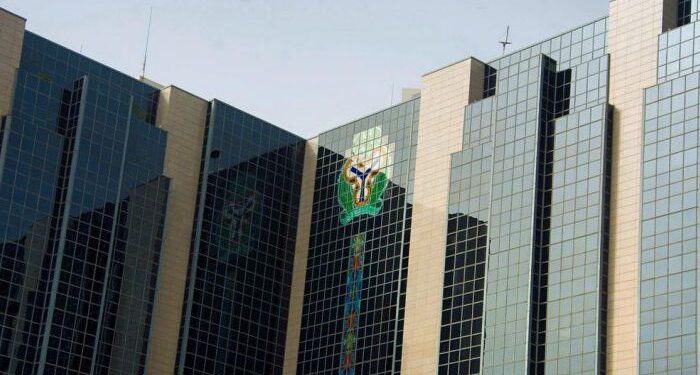The Central Bank of Nigeria (CBN), through its Creative Industry Financing Initiative (CIFI), has successfully completed a ₦68 billion renovation of the National Theatre in Iganmu, Lagos, breathing new life into Nigeria’s most iconic cultural landmark. The extensive project, led in collaboration with the Bankers’ Committee and the Federal Government, marks a major milestone in efforts to reposition the nation’s creative economy as a global powerhouse.
Originally built in 1976 to host the Festival of Arts and Culture (FESTAC ’77), the National Theatre had for decades suffered neglect, with its infrastructure falling into disrepair. Now, after years of reconstruction and modernisation, the edifice has been restored to its former glory, equipped with world-class facilities designed to attract local and international events, film productions, and artistic showcases.

Speaking at the reopening ceremony in Lagos, CBN Governor, Dr. Olayemi Cardoso, praised the initiative as a testament to the apex bank’s commitment to driving economic diversification through culture and the arts. He noted that the restoration of the National Theatre is more than just a facelift — it represents a reawakening of Nigeria’s cultural identity and a strategic investment in the creative sector’s job-creating potential.
“This project is a symbol of what strategic collaboration between the public and private sectors can achieve. The creative economy has the potential to rival traditional sectors like oil and agriculture, and this restoration is a step towards unleashing that potential,” Cardoso said.
He explained that the ₦68 billion investment covered structural rehabilitation, landscaping, interior redesign, digital upgrades, and the creation of a surrounding creative hub — known as the Lagos Creative and Entertainment Centre (LC&EC). The complex will host four creative clusters: music, film, fashion, and information technology, aimed at nurturing talent and fostering innovation across the value chain.
Minister of Arts, Culture and Creative Economy, Hannatu Musawa, commended the CBN and the Bankers’ Committee for their foresight in reviving the edifice, describing the project as a cornerstone of the government’s agenda to develop Nigeria’s cultural industries. She noted that the transformation of the National Theatre aligns with President Bola Tinubu’s Renewed Hope Agenda, which places emphasis on creativity as a catalyst for national development.
“The National Theatre stands as a beacon of our creative heritage. Its rebirth signals a new era for Nigeria’s artists, filmmakers, musicians, and designers who now have a world-class venue to showcase their work. This is the kind of infrastructure that fuels innovation and global competitiveness,” Musawa said.
She added that the project will boost tourism, attract international investors, and create sustainable opportunities for young Nigerians, particularly those engaged in content creation, fashion design, and digital media.
The Managing Director of Access Bank Plc, Roosevelt Ogbonna, who represented the Bankers’ Committee, disclosed that beyond restoring the physical structure, the initiative also focuses on creating an ecosystem that supports long-term economic growth in the creative sector. He said the adjoining creative hub is expected to generate over 25,000 direct and indirect jobs upon full operation.
“Our collective vision was to ensure that the National Theatre becomes not only a symbol of national pride but a living, breathing centre for innovation. The facilities are designed to international standards, making this space capable of hosting global events, film festivals, concerts, and exhibitions,” Ogbonna explained.
Touring the refurbished facility, visitors were impressed by the modern design and amenities, which include a 5,000-seat main hall, ultra-modern sound and lighting systems, upgraded cinemas, exhibition spaces, and a digital museum that chronicles Nigeria’s cultural evolution. The project also includes new parking lots, green spaces, and smart energy solutions.
Stakeholders in the creative industry have hailed the CBN-led initiative as a major win for Nigerian arts. Veteran filmmaker Tunde Kelani described the renovation as “a cultural renaissance” that would reposition Lagos as a creative capital in Africa. Similarly, fashion entrepreneur Lisa Folawiyo expressed optimism that the upgraded National Theatre would inspire collaborations across Africa’s growing creative landscape.
According to industry analysts, the revival of the National Theatre could contribute billions of naira annually to Nigeria’s GDP through increased cultural exports, film screenings, and creative entrepreneurship. The creative industry, currently valued at over $4 billion, is projected to grow rapidly if supported with consistent investment and enabling policies.
Economists have also pointed out that the CBN’s intervention represents a strategic diversification move in line with the global shift toward knowledge-based economies. By investing in creative infrastructure, the bank is helping to lay the foundation for sustainable non-oil revenue streams.
Beyond the arts, the CBN’s initiative has sparked renewed interest in public-private partnerships as a model for reviving other decaying national assets. Several stakeholders, including the Federal Ministry of Works and the Lagos State Government, have already expressed interest in replicating similar collaborative models for other heritage sites and cultural centers across the country.
As the National Theatre reopens, expectations are high among artists, entrepreneurs, and investors. The venue is already set to host international concerts, exhibitions, and film festivals in 2026, which officials believe will mark Nigeria’s return to the global cultural stage.
For many Nigerians, the renovated National Theatre is not merely a structure — it is a symbol of resilience, creativity, and pride. Once a decaying monument, it now stands as a monument of renewal, ready to inspire future generations and reaffirm Nigeria’s place as Africa’s creative heartbeat.
With the project completed and operations set to begin fully in the coming months, the CBN’s ₦68 billion overhaul has not only restored the National Theatre’s cultural glory but also reignited hope in the limitless potential of Nigeria’s creative economy.
Support InfoStride News' Credible Journalism: Only credible journalism can guarantee a fair, accountable and transparent society, including democracy and government. It involves a lot of efforts and money. We need your support. Click here to Donate
